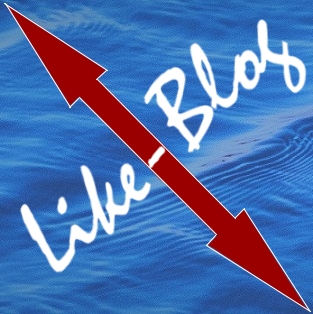Like-Blog
Presenting you the most interesting translation solutions

Why Like-Blog? Now, first of all, this blog is a blog that you should like (and read regularly) – at least, if you are interested in translation. Then, the topic discussed here is one in which the meaningful likeness between a text and its translation in the language pair English-German plays a key role. On this page, I will take a close look at some interesting translation solutions that I have come across in the course of my work as a translator and translation scholar.
A translation solution is only as good as the arguments that support it. This means that any translation criticism, whether positive or negative, needs to be justified. The quality of a translation solution shows only when we compare it to other possible translation solutions in a given translation situation. Therefore, a translation critic should not only say why a translation solution is bad, but also demonstrate what a better solution might look like. I will try to stick to these principles of translation criticism. So if you have any questions regarding my line of argument or if you disagree, please, let me know your opinion by phone at +49 4171 6086525 or by e-mail to bittner@businessenglish-hamburg.de. So much for the introduction. I hope you’ll enjoy reading this blog!
Tightly packed (September 2020)
In her “Letter from Uganda”, published in The Guardian on 15 October 2006 and referred to already in my blog post of June, Monica Ali writes about Ugandan refugee camps. One of these camps, Amida, she experiences first hand: “As I slide through the mud, between the tightly packed huts, following Geoffrey, Oxfam’s public-health facilitator, to his home, I almost laugh at the naivety with which I viewed those laminated cards.”
The translator renders this sentence into German: “Als ich durch die vollgestopften Hütten durch den Matsch schlittere und Geoffrey, dem Gesundheitsbeauftragten von Oxfam, zu seinem Heim folge, muss ich über die Naivität, mit der ich diese beschichteten Karten betrachtet hatte, fast lachen.” This translation should be improved in two places. Can you see where?
Stylistically inappropriate is the noun “Heim” as a translation for “home”. This can be a suitable rendering in a different context; however, in the context of a refugee camp, it certainly isn’t. The Duden defines “Heim” as “jemandes Wohnung, Zuhause (unter dem Aspekt von Geborgenheit, angenehmer Häuslichkeit)”, that is, somebody’s flat or home considered under the aspect of safety and homeliness. Thus, “to decorate one’s home” might well be translated into German as “das Heim schmücken”. However, you should not imagine the accommodation of the public-health facilitator of Oxfam in a Ugandan refugee camp to be nice and cosy. Therefore, the noun “Hütte” (“hut”) is a better translation, here.
Compared to this stylistic error, the translation error at the beginning of the sentence is more serious because it changes the meaning. What, do you think, are “vollgestopfte Hütten”? Well, to be sure, there is the expression of a “tightly packed suitcase”, which would be rendered as “vollgestopfter Koffer”. But what would the huts be tightly packed with? People? That would be a rather disrespectful way of putting it. No, the meaning is different: the plural form “tightly packed huts” refers to the limited space that is left between the huts.
By way of conclusion, the following translation would be acceptable: Als ich zwischen den dicht an dicht stehenden Hütten durch den Matsch schlittere und Geoffrey, dem Gesundheitsbeauftragten von Oxfam, zu seiner Hütte folge, muss ich über die Naivität, mit der ich diese beschichteten Karten betrachtet hatte, fast lachen.
